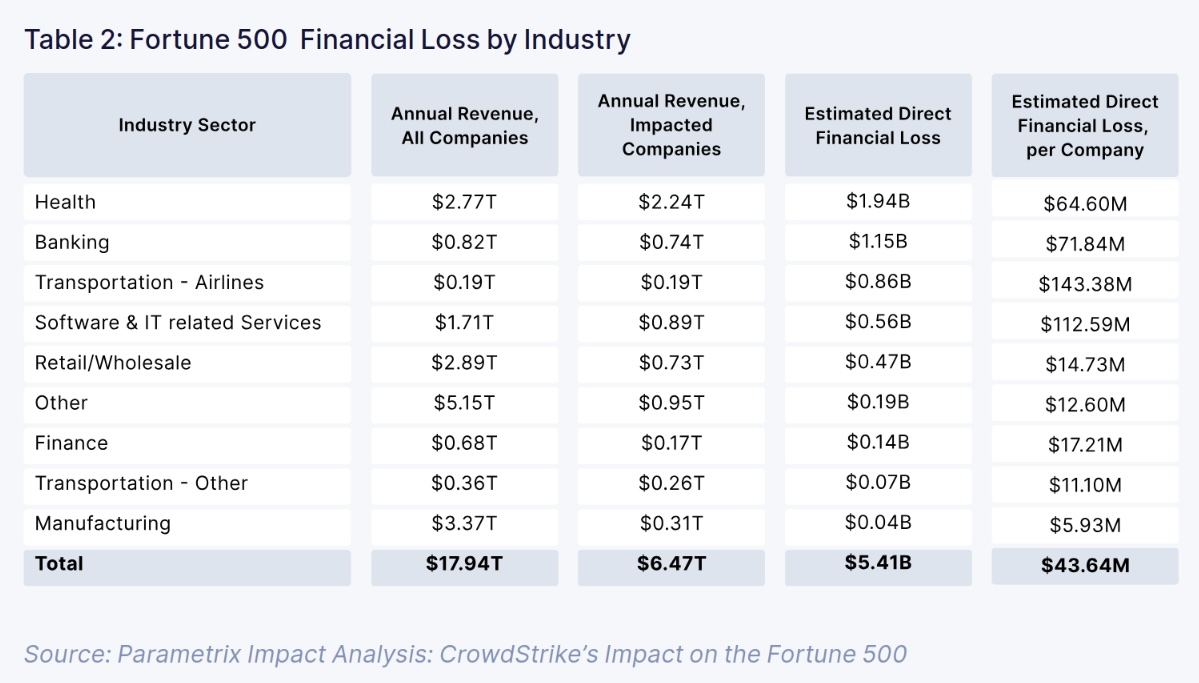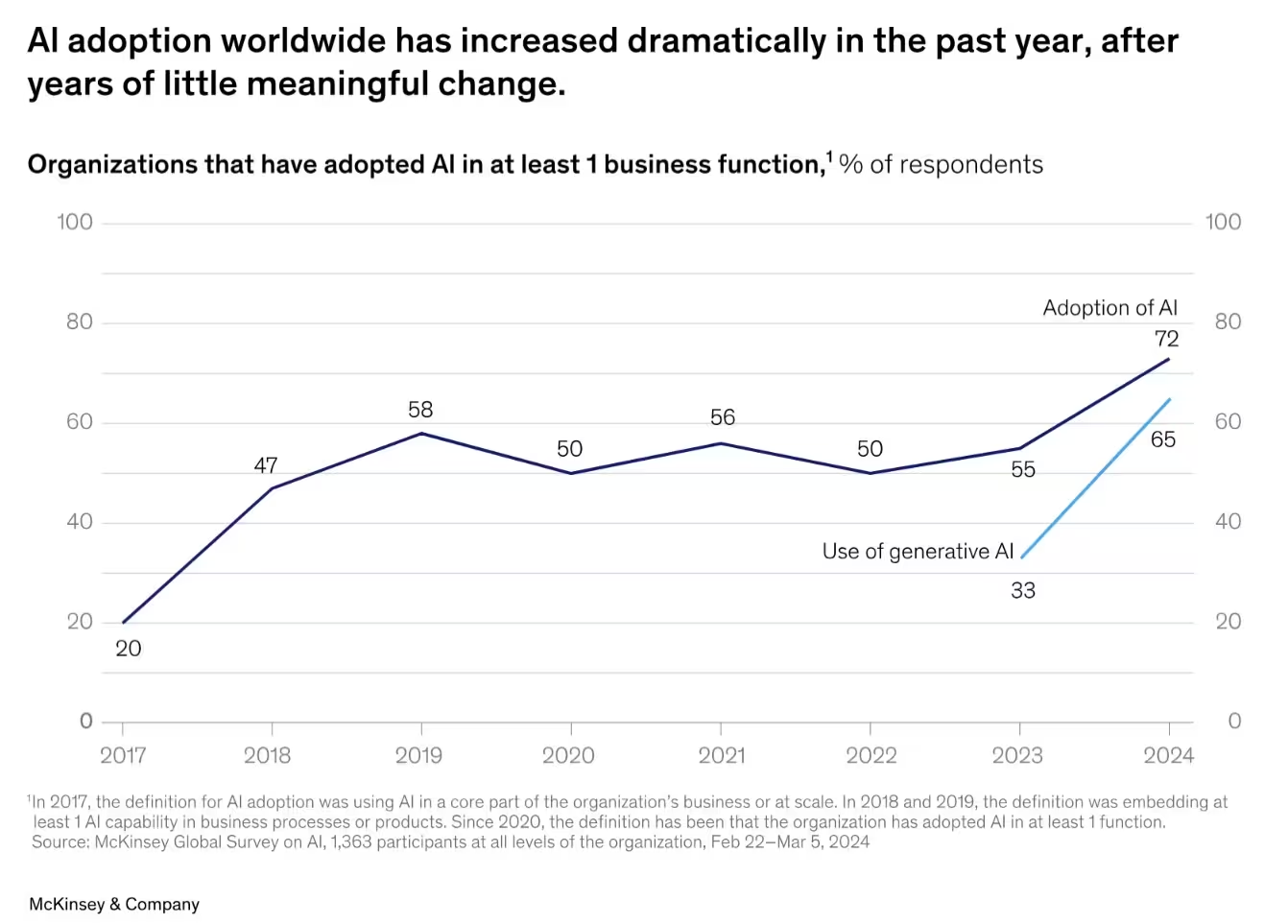HodlX Guest Post Submit Your Post
AI is one of the most powerful, disruptive industries since the internet.
But with increasing centralization and monopolistic control of companies like OpenAI, it’s moving in a dangerous direction away from the grassroots.
Per McKinsey’s study in early 2024, about 72% of businesses are using AI in at least some capacity. And 65% of them are using generative AI.
Source: McKinsey
Companies like OpenAI are at the forefront of this adoption, with their products like GPT-4o being used across businesses and industry verticals.
This raises the critical question is OpenAI too big to fail?
Given AI’s rapid expansion and increasing adoption in key industries, the scale and influence of for-profit corporations like OpenAI pose risks of excessive dependence, power concentration and system failure.
If this continues, extractive business models could become the norm in AI, as in Web 2.0 overall.
Building functional, user-centric frameworks to offset the rising power of legacy AI companies is the way out.
The stakes are high very high
It might seem far-fetched doom calling to the short-sighted. But the problematic implications of letting OpenAI or similar companies become unchallenged monopolies are visible in many other areas all around us.
The thing is that OpenAI’s influence or dominance isn’t merely because they built cutting-edge AI models like GPT-4o.
Widespread integration with critical industries from healthcare to education and finance also plays a huge role here.
As such, a large number of businesses rely on OpenAI’s tech for essential functions. Any disruption or failure on the company’s part could result in massive collateral damage.
The recent Microsoft outage is a glaring example, where Fortune 500 companies suffered over $5 billion in direct losses across industries.

Source: Parametrix
Besides financial losses, the incident disrupted global aviation, with 2,217 flights delayed in the US alone, which affected over 3.7 million domestic and international passengers.
Nine-one-one was down in several states. Banks went offline.
The world came to a standstill for a considerable amount of time. That’s the danger of excessive dependence on one or a few centralized entities.
They become so big, that their collapse can bring down many others if not everything else.
The issue is even more pronounced with AI, as the impact of centralization extends beyond the possibility of…
Click Here to Read the Full Original Article at The Daily Hodl…
























